|
This review first appeared at the Estonian cultural weekly SIRP. You can read it in Estonian HERE
Foxcatcher (Dir. Bennett Miller, USA, 2014) The view of masculinity through the prism of modern American cinema is – very broadly – expressed in two ways. The modern Hollywood blockbuster celebrates the physical and the powerful, while so-called ‘indie films’ will often see a male negotiating a complex world in which their identity is somewhat unfulfilled and lost. Ostensibly based on a true story about amateur wrestling superstars Mark and David Schultz and their ultimately tragic relationship with millionaire John Du Pont, Foxcatcher soon reveals itself as a blend of the above approaches as it explores masculinity while dwelling on the nature of male physicality and communication. Early in the film we see former Olympic gold medallist wrestlers Dave and Mark Schultz (played by Mark Ruffalo and Channing Tatum, respectively) together for the first time, meeting up in an empty training gym. The pair barely exchanges a word, instead slapping each other and then grappling with one another. Their relationship is immediately defined by the physical and will continue to be done so throughout the film. At one point they hug each other and even this moment of brotherly intimacy resembles a collar-and-elbow tie up (the wrestling manoeuvre which begins most bouts). This is a world in which the verbal and the emotional are subordinated to communication through the body. Despite the fact that there is only one year age difference between the two, it soon becomes clear that Mark is the more child-like of the two brothers. Dave has a wife and children and seems more comfortable in a domestic setting while Mark is quiet and constantly on edge (indeed, early scenes of him sitting alone in his house eating cereal evoke images of a surly teenager). When John Du Pont (Steve Carrell) comes on the scene to offer to let Mark come to his ‘Foxcatcher’ mansion in order to train for the 1988 Seoul Olympics, it is apparent that Mark is not only embracing the opportunity to take advantage of the facilities offered by the multi-millionaire but also to escape from out of his brother’s perceived shadow. The relationship between Du Pont and Mark at first seems a paternal one. Du Pont is certainly the most verbose of the male characters we have encountered so far and he gently encourages Mark with stirring speeches. But these rousing orations have the ring of cliché – he talks of making America great and serving the country – and his words hide yet another man unable to express his feelings. Bowed by his domineering mother (Vanessa Redgrave, who – aside from Dave Schutlz’s wife - is the only significant female presence in the film), Du Pont craves both attention and adulation. Subtly manipulating Mark (including introducing him to cocaine), Du Pont is intent on having an Olympian that he can claim credit for whilst changing his mother’s mind about what she considers a ‘low’ sport. There’s a slight element of homoeroticism in the relationship between Mark Schultz and Du Pont. One wrestling session between the two is shot almost as if it’s a sex scene while at one Mark cuts and dyes his hair, as if making himself beautiful for a new lover. This element once again deals with the unsaid and the inability to express feelings in anything other than a physical way. This element has led to criticism from the real life Shultz and it does make one think about how the film takes liberties with the reality on which it is based. Whilst it seems sometimes churlish to blame any film for changing a true story in order to make its narrative more cohesive and streamlined, any work that makes a virtue of being based on said true story (especially one in recent memory) must face criticism when these omissions would seem disruptive. Aside from certain issues with the timeline of events, the film’s biggest omission is the subsequent diagnoses of Du Pont suffering from Paranoid Schizophrenia. While it would have made the film more complex, it seems too big of an issue to brush aside completely. The cinematography from Greig Fraser (responsible for the likes of Zero Dark Thirty) emphasises just how lonely and isolated the lead characters are when they're removed from anything requiring physicality. There is constant use of shallow focus within the large and empty locations (such as Du Pont’s Foxcatcher Mansion) in which the characters seemed dwarfed by everything around them, coupled with dour and washed out colour schemes. This marked out loneliness is juxtaposed with the closeness and intimacy of the wrestling scenes that teem with life and passion. It’s also worth mentioning that this is a remarkably chaste movie, containing only a modicum of swearing. In a male dominated sport, one would expect the expletives to be flowing like water but it seems that even this kind of emotional verbalisation is verboten within the world of the movie. Once again, everything has to lead back to the physical. Much has been made of the lead performances with Steve Carrell (swathed in prosthetics) getting the majority of attention. While there is a certain amount of hyperbole within this (as there often is when people want to talk about a 'comic actor turned serious'), it is an engaging performance that shows restraint with Du Pont’s obvious emotional problems bubbling under the surface. Tatum is something of a revelation managing to turn stillness and economy into something of an art. With a powerful physical presence he manages to convey much while saying relatively little. But it is Ruffalo who is perhaps the stand-out here. With little physical touches (walking with a stiff and awkward gait showing his years in the sport) alongside a sympathetic performance, Ruffalo places Dave Schultz at the emotional heart of the movie. Out of everyone he is the one at most peace with who he is, a fact that renders the inevitable conclusion of the film even more tragic. Indeed, the sparse lead performances emphasise one of the most remarkable thing about Foxcatcher. Despite its ‘Indie’ credentials, the film is a product of a major American studio . And it’s a film that revels in stillness and solitude: as if Bela Tarr had accidentally been let on-set of a Hollywood blockbuster. It's this unique aesthetic combined with a take on gender usually unexplored by American cinema, that makes Foxcatcher such a rewarding experience. While there are other readings to take from the film (Du Pont’s character is as much an indictment of the moral decadence of the American elite as it is of his individual upbringing), Foxcatcher plays with something that is almost a ‘Catch 22 of masculinity’: How men must keep their emotions in check despite the fact that there is danger inherent when these emotions aren’t expressed. This review appeared in the Estonian cultural weekly Sirp, and you can read the Estonian version of the review HERE
Below is the original English version: “A Thing Is A Thing, Not What Is Said Of That Thing” In Alejandro González Iñárritu’s Birdman (or the Unexpected Virtue of Ignorance) (Dir. Alejandro González Iñárritu, USA , 2014) this maxim is taped to the dressing room mirror of actor Riggan Thomson (Michael Keaton). A shallow slice of philosophy it may be – the type of phrase that gets trotted out on Facebook and Twitter with tiresome regularity by people desperately trying to appear profound – but it serves as a perfect encapsulation of the tensions at the heart of Birdman, as the trappings of fame and the reality of perception are playfully scrutinized. The film sets it’s stall from the opening moments with Thomson – preparing a new Broadway play that he hopes will legitimise him after spending years playing superhero ‘Birdman’ in Hollywood – meditating whilst floating a few feet off the ground. At odds with what one would associate with your typical American Indie film it immediately plunges us into a world in which reality and fantasy are at battle with one another. It soon becomes apparent that it is one of a number of dichotomies that the film will revel in. On a narrative level the film deals with Riggan’s belief that years playing a superhero has diminished his credibility as an actor and his play – an adaptation of Raymond Carver’s What We Talk About When We Talk About Love – is an attempt to rescue his reputation as being nothing more than Hollywood whore. But when actor Mike Shiner (Ed Norton) comes in to take a supporting role, his attempt to ‘find the truth’ in any role makes Riggan feel even more like a fraud and he begins to question the worth is his search for legitimacy. On one level the film is an exploration of this tension between the desire to be popular and the need to be seen as ‘worthy’. The battle is internalised within Riggan (as the Birdman character talks to him incessantly, urging him to get out of the theatre and return to Hollywood to make Birdman 4) and the point is hammered home when theatre critic Tabitha Dickson appears on the scene and promises to destroy the play, sight unseen, because “…. I hate you. And everyone you represent. Entitled. Spoiled. Selfish.Children. Blissfully untrained, unversed and unprepared to even attempt real art.” One feels that Iñárritu is indulging a certain amount of gleeful revenge in casting the critic in the role of a villain and this sense of the mischievous is apparent in the casting. It’s no secret that the Riggan was written with Michael Keaton – the star of Tim Burton’s Batman movies – in mind but let’s not forget that Ed Norton (in The Hulk), Naomi Watts (in Peter Jackson’s King Kong) and even Zach Galifianakis (in The Hangover franchise) have all had their flirtations with mainstream Hollywood genre cinema. It plays on their star personas with people such as Galifianakis playing against type (his part is effectively a straight role) and adds another level to the constant questioning of the ideas of fantasy and reality. As intriguing as this duality is, the power of the performances themselves should not be dismissed. The supporting cast all do well with Norton’s ‘method’ actor being a fine blend of arrogance and confidence (though his story does seem to end rather abruptly). But it’s Keaton who holds everything together as Riggan, an actor constantly tortured by the threat of his own mediocrity. Keaton brings a nervous energy to a character also on the verge of a collapse, as if he’s going to be ‘found out’ at any moment. It’s a breathless and highly-strung performance in which Keaton manages to be both unlikable and sympathetic. A moment in which his daughter (Emma Stone) devastatingly savages him for having no relevance (“I4 mean who are you? You hate bloggers. You make fun of twitter. You don't even have a Facebook page. You're the one who doesn't exist,”) brings forth his desperate need to ‘be somebody’ yet it is also a tragic moment of someone who realises that life had passed them by. It’s easy to see the film as a satire on the practises of modern Hollywood. While it’s obviously present this is not Iñárritu engaging in biting criticism but giving something more of a world weary sigh. Indeed Birdman is as much as a swipe at those who believe they are above so-called ‘low culture’ as it is those who may be said to aim for the lowest common denominator. This dichotomy between low and high culture is also played out in the aesthetics of the film. Much has been made already of the fact that Birdman is screened in one continuous take. It’s certainly a remarkable technical achievement from cinematographer Emmanuel Lubezki managing to feel organic and natural and avoiding the ‘gimmicky’. It provides a theatrical feel to proceedings (amplifying the fact that it is mainly set in an actual theatre) and the film starts to play with ideas of cinema versus the stage. There is something of a dialectical examination here with the naturalism of the theatre juxtaposed with moments of pure Hollywood excess (one of Riggan’s fantasies involves a battle sequence straight out of any Summer Blockbuster). Is Birdman a better – and therefore ‘more worthy’ film – because it evokes the more legitimately perceived theatrical tradition? Does its use of standard Hollywood tropes somehow make it less cultured? There is a moment when Watts and Amanda Risebourough share a kiss – seemingly out of nowhere – and the incident is not referred to again. In hindsight it seems to be making fun of the titillation inherent in many a Hollywood film and the need to put such scenes in to make them popular amongst a wide demographic. At another point Shiner states that “Popularity is the slutty cousin of prestige,” suggesting that the two are mutually exclusive. Could Birdman itself by either one but never both at the same time? Iñárritu never really seems to come down one way or the other. He instead enjoys positing these self-reflexive questions while exhibiting something of a futility in actually trying to come up with a coherent answer. Birdman is a unique experience in that it is consistently playing games with both the audience and its own form. As a satire of Hollywood and the egos contained within, it’s a fine piece of work that is buoyed by some excellent cinematography and some exceptional performances. But as a piece of cinema – a medium which is perhaps the most prone to accusations of shallowness and falsity – it’s a fascinating treatise on the nature of reality and how the notion of truth is favoured above all. By Laurence Boyce If you're here, you no doubt already know that I like short films. Hell, I even earn much of my living out of them.
In my current role as Executive Editor of Cineuropa Shorts, I have put together a look at the Best Shorts of 2014 in which the various great and good of the European short film scene choose their best short films of the past year. HERE IT IS for your perusal This little exercise was something that I suggested last year in response to the numerous 'Best Of' lists that spring up at this time of year. Inevitably, there would be loads of lists of features (of which I contributed to quite a few) but they would nary be a word said about shorts. So I decided to suggest a poll of favourite shorts and - lo and behold - some people went for it. In many ways, these kind of lists are reductive. I had to limit the participants to five films and only those of European origin. So it meant that the brilliant US film A MILLION MILES AWAY had to be missed out and I probably had many people umming and ahhing about what to choose. There are so many good shorts - ones that are good for many different reasons - and it seems almost an exercise in masochism to choose an almost arbitrary list. Yet, we're still in a situation where shorts don't get as much coverage as they deserve and any list such as this not only allows us working in the short film world to engage in a bit of dialogue as well as giving some more exposure to some great films. Perhaps 'Best Of' is the wrong word...? The 'Shorts That Struck a Chord in 2014' perhaps? Still, I hope it makes some people think about shorts and want to check them out (and to do that all I can suggest is that people check out their film festivals - and if they don't bring the films, demand to know why!). As for choices. Adrian Sitaru's Arta is just a great work and the others I chose really resonated with me though - to be honest - there are many, many more that would have worked for me. It did become clear that I have lagged behind in my Animation and Experimental watching. Something that I hope to rectify in 2015. So here's to shorts in 2014 and a great deal more good ones in 2015 I have never found myself a huge fan of the work of Alejandro González Iñárritu (I am not sure why, but he's a director that has already left me rather cold) but I have been looking forward to Birdman for a while. In many, many ways I was not disappointed. A full review shall be forthcoming when the film is released in Europe in January. But here are some initial thoughts.
Birdman (or (The Unexpected Virtue of Ignorance) (Dir. Alejandro González Iñárritu, USA , 2014) *The whole 'done in one take' thing in the film works and doesn't come across as a gimmick (though it certainly draws attention to itself). *I wouldn't join all the 'Keaton proves himself a brilliant actor' accolades. Because he's a always been a brilliant actor and turns in a great performance here. *Of course the while Keaton played Batman thing looms large. But Norton has form - with The Hulk - as does Emma Stone (Spider-Man). I don't see the film as an indictment of the Hollywood system. More of an indictment of those who think they are above it,. *Lots of 'speeches'. Stone's one to her Dad about relevance and Riggan's one to the critic are among the highlights *Galifianakis plays it straight which I think adds to the whole 'playing against type' nature of the film *It is a satire but not a biting one. More of a world weary sigh *I am still not sure of the reason for the lesbian kiss *Norton's story seems to stop pretty suddenly *It's a film of theatre and theatricailty. It's a unique experience *Some much better than me pointed out that each character enters by one door in their dressing room and leaves by another. Is this a 'thing' in the theatre or an extension of the theatrical nature? *Loved the music with the idea of 'walking to your own theme tune' *It's dark and dour yet there's a spark behind it as well This is a new retitled column where, after seeing a film, I jot down a few of my initial thoughts and ideas about a film I have recently seen. Think of it like an online notebook for myself and a way in which to get some thoughts down without reviewing the film proper. These are going to be random and not attempting any form of coherence.
Foxcatcher (Dir. Bennett Miller, USA, 2014) *For me it's a film about masculinity and physicality. The way in which some men can only express their emotions through the physical. And how this can lead to anger and resentment. *You can see how the brother's relationship is tied into their physicality. Even thier hugs look like a wrestling collar and elbow tie-up. Only Dave is the one who can verbalise any form of emotion. *It's remarkably free of swearing. May seem like a small point but in a sport/world where you'd expect people to be swearing up a storm it seems even this verbalisation is verboten. All leads back to the physical. *So many little subtle touches throughout. Such as Rufallo - playing wrestler Dave Schultz - walking with a stiff and awkward gait showing his years in the sport. Or the cauliflower ears on Tatum. *The three leads are good. Steve Carrel is getting the bulk of attention. If you set aside all the hyperbole about 'Comic actor turned serious' and the prosthetics he wears, then it is a very good performance of stillness and economy. The same goes for Tatum, who's awkwardness and hulking presence are the key to another spare performance. Ruffalo is perhaps the stand-out here though. But all three create a lot by actually doing very little. *There's more sparseness in the cinematography of Greig Fraser. (Zero Dark Thirty). Lots of shallow focus that marks out the isolation of the characters. The same that goes for the locations and dour colour schemes - all serve to mark out loneliness with closeness and intimacy reserved only for the wrestling scenes. *There is a undeniable hint of the homoerotic displayed between DuPont and Mark Schultz, but couched in a subtle way. *Using 'based on true story' means it fudges some aspects of the real situation. For example, it almost totally glosses over DuPont's paranoid-schizophrenia. 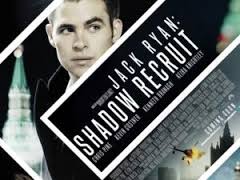 As with everything else this New Year, I join a long list of people who are promising to update their blog a lot more often. This will probably not happen, but hey, one can live in hope. So I am going to start this new year with another Random Musing - a place to jot down a few thoughts of a film I have just seen. This is not a place for deep analysis or a full review. Just a ragbag of pointers that you should take with more than a pinch of salt. I will try and avoid spoilers but if you're really, really eager about seeing it, read this after I've done, OK? Jack Ryan - Shadow Recruit - If there's any US character similar to James Bond then Jack Ryan may be it. With multiple actors (Baldwin, Ford and Affleck) playing him on screen and a mythology behind the character, he is the All American Do-Gooder reflected against Bond's rakish hero. But the character and films have always lacked the tongue-in-cheek quality of Bond (though this quality has mostly been disposed of in the Craig era) -Indeed, this is a reboot in the vein of the 2006 Casino Royale in idea if not totally in spirit (though Ryan's 'first kill' is really reminiscent of Bond's in Royale). Here, Ryan is updated as a product of a post 9/11 USA though much of his back story is kept the same as the original stories and, indeed, forms the beginning of the film. -Kevin Costner turns up in a Navy uniform. I kept wanting to go 'Don't trust him. Have you never seen No Way Out?' - It's official - Russians are the bad guys once again. Thousands of Arab-American actors and Art Malik start looking for teaching jobs to make up for the loss of income. -As the chief baddy, Kenneth Branagh does a Russian accent/speaks Russian which is more than Connery attempted in Hunt for Red October. -Chris Pine and Keira Knightley do fine as Ryan and his Doctor girlfriend though Knightley becomes one of these 'superwoman' characters at a drop of a hat which smacks of lazy writing. -There's one sequence which is particularly interesting post-Snowden and Prism revelations. Ryan tracks the bad guys by social security / social media / phone records. There's a real feeling that there should be a caption 'Brought to you by the NSA'. Indeed, I heard Bill Hicks in the back of my mind go ' Go back to bed, America. Your government is in control again....' -All in all it's a rather workmanlike effort that's obviously there to kickstart a franchise. As the obvious blockbuster in between all the 'worthy' films of award season, it should do OK and I am sure Ryan will be back. -Oh, and I swear that the guy who played Sinbad in Brookside has a small scene in the film. Anyone want to confirm if I being bonkers or not? (Yes, I know: I post here infrequently. Fingers crossed that this may change one day on the near future....)
Anyway, I'm back to talk mainly about the 20th Anniversary 3D re-issue of Jurassic Park which will be winging it's way to you over the next few months (or, if you live in Estonia, on the 11th and 12trh June). For a start off, it's a bit sobering to know that this film is now 20 years old as I remember vividly when it came out. There was an excitement in the air as well as an anticipation for, what at the the time, was going to be one of the most technologically advanced movies ever made. Oh, and there was lots and lots and lots of merchandise everywhere that was pretty hard to escape from - much of which I owned, and is probably still floating around a loft somewhere in the UK (and the sad thing I'd still gratefully get more if I could find it). Over the ensuing years I have caught the film again and again. I once studied it as part of my university course. I even once watched it on a small TV in a hotel room in Egypt. Even as the film posits that dinosaurs will come back, it seems that Jurassic Park will be around forever as well. Watching the film again on a big screen reminds me of just what a technically brilliant filmmaker Spielberg is, especially when he's working in genre. With his reputation as a 'serious' filmmaker only really emerging after Jurassic Park (Even with films such as The Color Purple, it would only really be after Schindler's List - would be released soon after JP - that Spielberg would be seen as a 'more complete' filmmaker). He would often work in broad strokes (though never confuse 'broad' with 'unsubtle') leading to scenes to the now often parodied 'ripples in the glass of water'. There was always tension, danger with a singular rush of excitement and it still works to this day. At the time it was the dinosaurs that was the selling point but as technology has moved on, it would seem to be less of a selling point (and, to be fair, while the 3D is competently done is doesn't really add or take anything away from the film). But there's still the rush of seeing the T-Rex for the first time and the tingle of fear when the Velociraptor appears. Even as time has moved on, they're still brilliant technical achievements but the rush is - again - also due to Spielberg's direction, knowing when to reveal the creatures and when to leave them tantalizingly hidden. But it's also due to actors such as Sam Neill, Laura Dern, Jeff Goldblum and Bob Peck (a brilliant actor, whose performance as the gamekeeper shows just what a loss he was when he passed away) whose expressions of pure joy and wonder seem to come from the heart and really make us believe that dinosaurs are back to roam the Earth. Beneath the old 'dinosaurs are back' theme there's also the traditional Spielberg theme of fathers, children, abandonment and re-connection alongside ideas of humans playing god and how nature finds a way (the latter of which is often dealt with Goldblum epitomizing every bug-eyed crazy scientist trope you'd like to think of). Years on, Jurassic Park is still a worthy cinema experience (as are the sequels, apart from the last 20 minutes of The Lost World) and a big screen outing is fun, especially if you get used to seeing it in TV so many times. You might not think that the fact that dinosaurs have been brought back to life is as amazing as it was 20 years ago but, up there on the big screen, I'd defy film fan not to enjoy the rumble of the world as the T-Rex gets closer.... 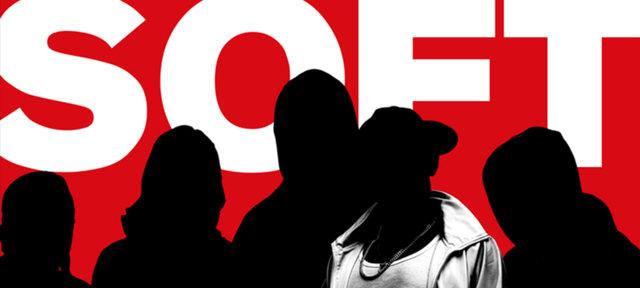 Yes, I've been away for a long time but you know - I've been busy. Just to say that I have been writing a lot about shorts lately. As I think they're ace and people should watch a lot more of them. Including Soft... Firstly, I preview the Oscar Short Nominees over at Screen International and I take a look at some of the Best British Shorts at The Guardian. I should do more writing on here at some point, otherwise the cobwebs are going to take over. In the meantime, enjoy the writing about short films. And there will be much more soon! 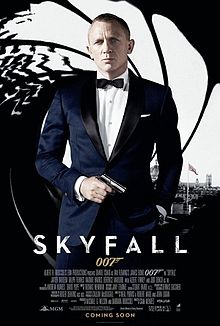 This are just some of my random thoughts on the film before my review gets done very soon. There are no spoilers here. Well, there's one if you think 'It's bloody ace' is a spoiler. *Even from the very first moments (a brilliantly staged chase sequence) everything just feels so right. This is Bond and he's back. *Given the 50th Anniversary of Bond, it's appropriate that the film is basically a distillation of the entire franchise with bits that hark back to Connery, Moore, Lazenby, Dalton and Brosnan. But Niven and Holness fans will be disappointed. *Lovely line from Q: "You were expecting an exploding pen? We really don't do that sort of thing anymore," *Bardem is brilliant and actually might overshadow his performance in No Country For Old Men. He has the chops of the quintessential Bond villain but with some meaty motivation. And a fine line in creepy campness. *Sam Mendes directs with aplomb. Everything feels so right and accomplished and there's so many bravura sequences that manage to stand out on their own without the film feeling like one huge fight sequence *The humour is back. It's subtle but it's there. No matter what you think of Craig's first two outings (I think Quantum of Solace was a huge misstep) they suffered from being rather po-faced. This is still serious but it's not afraid to stretch for some subtle humour. *There's tonnes more great stuff. But this is a stunning film. Perhaps the best Bond ever. 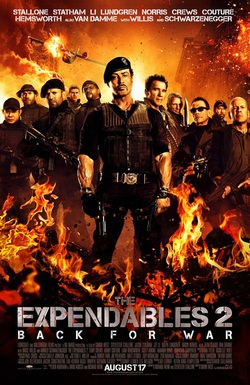 Yes, I know I have been away for ages. Busy, you know. But here's what I thought about Expendables 2. Warning, there may be spoilers here. *For complete rubbish of the highest order, the first Expendables was OK. But will the novelty of seeing all these action stars together wear out? *Seems the violence has been ramped up slightly, or at least it seems a lot more visceral than the first *Schwarzenegger is looking older but considering he's 65 he's still doing OK *Considering the faces of Van Damme and Stallone amongst many others others, there's enough Botox here to fill the Grand Canyon *Really, The Expendables should refer to all the poor nameless Asian and Russian henchmen who are dispensed with like so much dog food. I know it's par for the course in movies like this but still it's rather ridiculous. *So, a bunch of rock hard and violent men can snap necks in a variety of bloody and different ways but not one of them ever mentions the word 'fuck'. *Billy recounts a long sob story about the war and then talks about the beautiful French nurse he wants to leave the mercenary life for. It's like when a soldier in a WWII movie shows a picture of his fiancee and says 'This is my girl, we're going to get married when this damnable war is over': you're looking at the screen and going 'He's dead' *Willis, Schwarzenegger and Stallone have fun doing each other's catchphrases and generally making fun of all their careers. Norris also turns up to spout one of those 'Chuck Norris Facts' and laugh at himself: though he seems slightly less willing to do so *The film is still just a noisy orgy of explosions and wanton destruction though. Even though there's some wit, it gets grating and dull. Bet you there'll be another sequel.... |
AuthorJournalist. Filmy type person. Likes crisps. Archives
December 2015
Categories |
| Laurence Boyce |
|
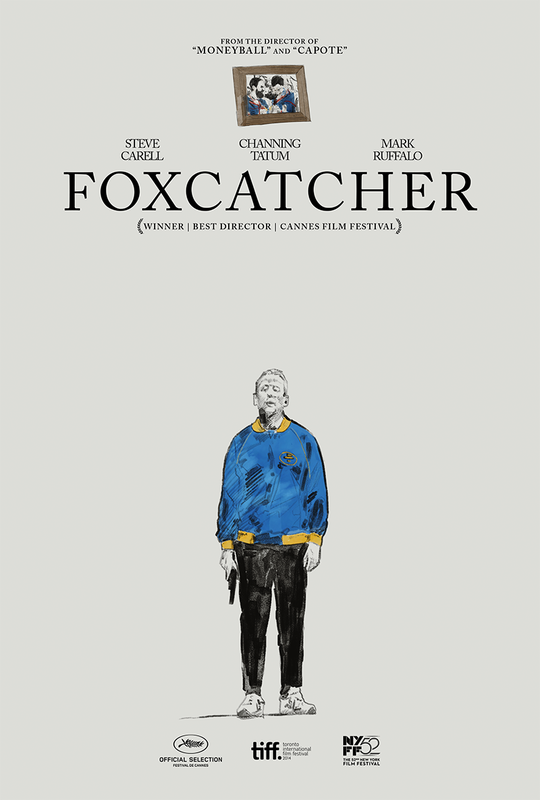
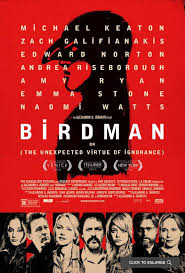
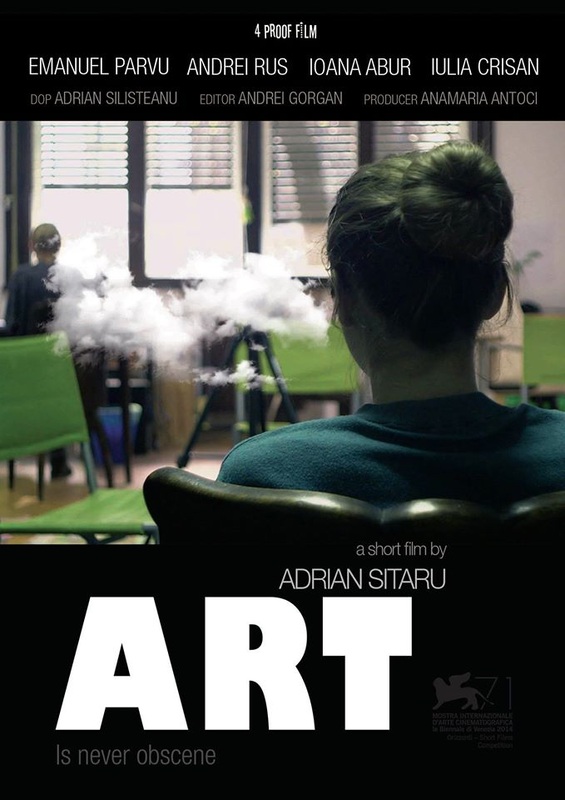
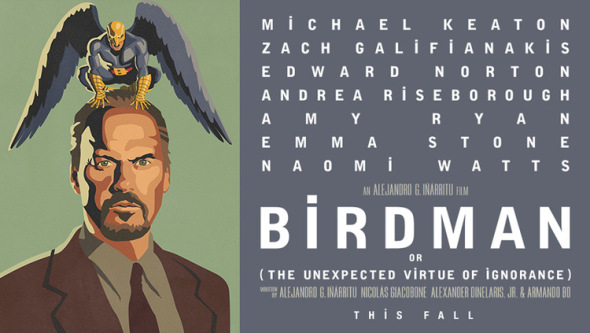
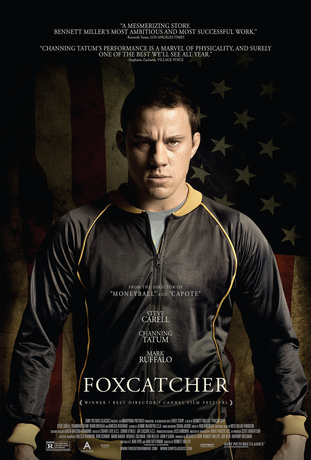
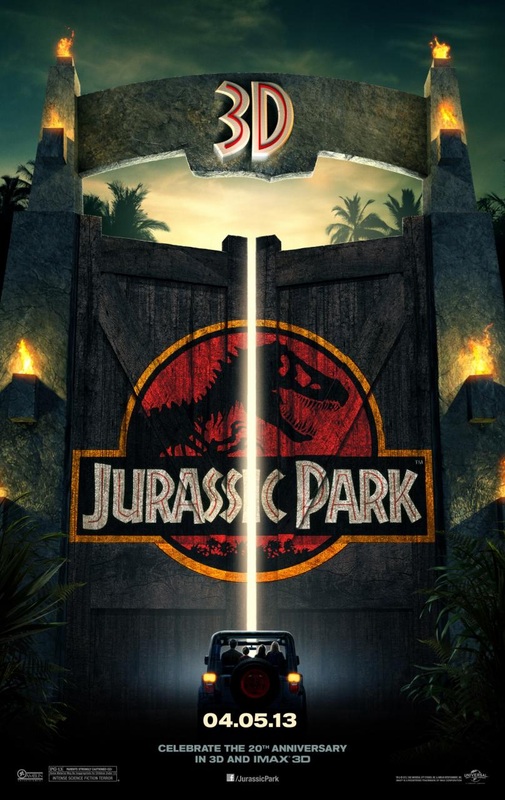
 RSS Feed
RSS Feed
